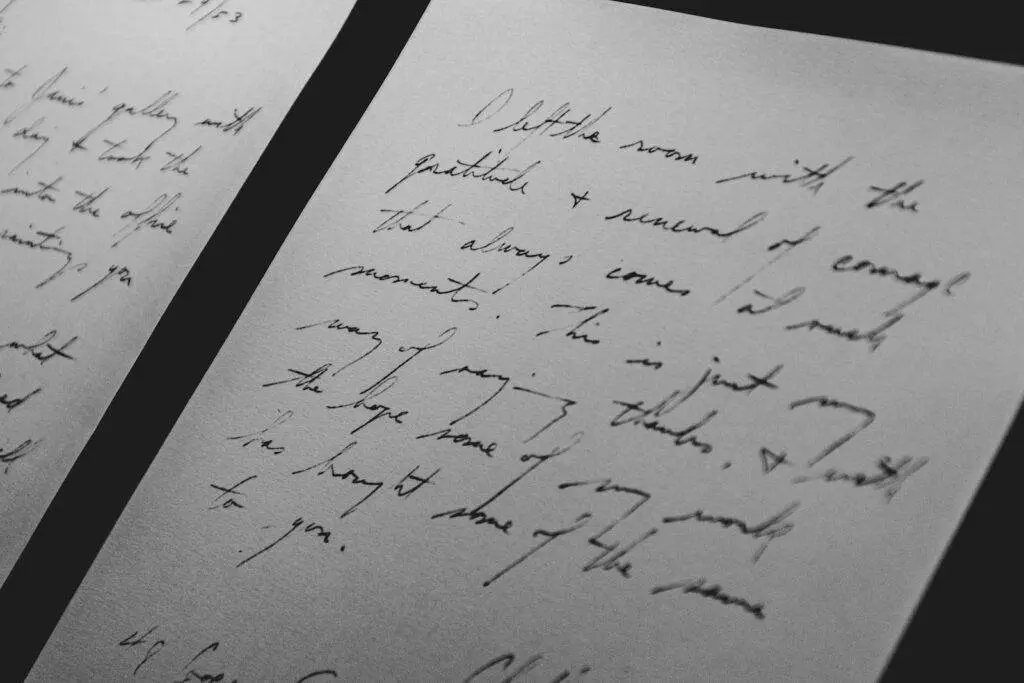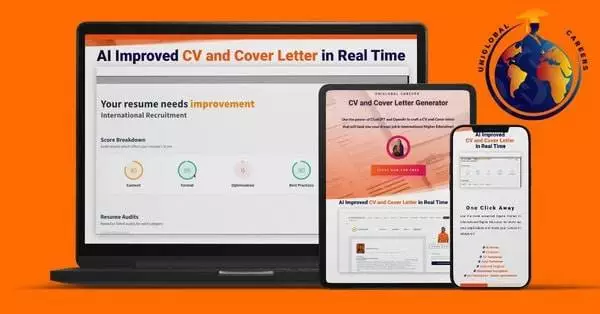Applying for a global higher education job is an exciting opportunity that allows you to expand your professional horizon and dive into new cultures. However, it is also a challenging process that requires careful consideration and preparation. Whether you are a recent graduate or a seasoned professional, avoiding these common job application errors will significantly increase your chances of success.
1. Failing to Research the Institution and Its Culture
When applying for a global higher education job, it is crucial to research the institution thoroughly to understand its mission, values, and cultural context. This step will help you tailor your application to the institution’s specific needs and demonstrate your compatibility with its vision.

Understanding the Institution’s Mission and Values
Before submitting your application, you should study the institution’s mission and core values to get a sense of its approach to education and research. This will help you understand the institution’s priorities and goals and enable you to present yourself as a candidate who shares its values and vision.
For example, if the institution prioritizes interdisciplinary research, you can highlight your experience working across multiple fields and your interest in collaborating with colleagues from different backgrounds. Similarly, if the institution emphasizes community engagement, you can showcase your experience working with diverse communities and your commitment to making a positive impact in the local and global community.
Adapting Your Application to the Cultural Context
Global higher education jobs often require candidates to adapt to different cultural contexts, which can vary significantly from one institution to another. Therefore, it’s essential to understand the cultural nuances of the institution you are applying to and present yourself in a way that aligns with its expectations.
For example, if you are applying to an institution in a non-English speaking country, you may want to highlight your language skills and experience working in multicultural environments. You may also want to modify your resume and cover letter to include references to local customs and traditions to demonstrate your understanding and respect for the local culture.
Additionally, it’s essential to research the institution’s teaching and learning methods, as these can also vary significantly from one institution to another. For example, some institutions may prioritize lecture-based teaching, while others may emphasize experiential learning or project-based assignments. By understanding these differences, you can tailor your application to highlight your experience and skills in the relevant areas.
In conclusion, researching the institution thoroughly and adapting your application to its cultural context is crucial when applying for a global higher education job. By doing so, you can demonstrate your compatibility with the institution’s vision and increase your chances of being selected for an interview.
2. Submitting a Generic Application
One of the most common mistakes that job seekers make when applying for a global higher education job is submitting a generic application that does not address the specific requirements of the position. While it may seem like a time-saver to submit the same application to multiple job postings, this approach can actually hurt your chances of landing the job.
When you submit a generic application, you are not demonstrating to the employer that you have taken the time to understand the specific requirements of the position. Employers want to see that you have a genuine interest in the job and that you have the skills and experience necessary to excel in the role.
Instead, tailor your application to the job at hand by highlighting your relevant skills and experiences. Take the time to research the institution and the job requirements so that you can craft an application that speaks directly to the needs of the employer.

Tailoring Your CV and Cover Letter
Tailoring your CV and cover letter to the specific requirements of the position is essential to demonstrate your fit for the role. A generic CV and cover letter will not give the employer a clear understanding of your skills and experience, and may even cause them to overlook your application entirely.
When tailoring your CV and cover letter, start by reviewing the job posting in detail. Look for specific skills, experiences, and qualifications that the employer is seeking, and then highlight how your own skills and experiences align with these requirements. Be sure to use specific examples to demonstrate your achievements and successes in previous roles.
Highlighting Relevant Skills and Experience
When researching the institution and the job requirements, look for specific skills or experiences that are essential for the position, and be sure to highlight them in your application. This will demonstrate your suitability for the role and help you stand out from other applicants.
For example, if the job posting requires experience working in a multicultural environment, highlight any previous roles where you have worked with people from diverse backgrounds. If the posting requires experience with a specific software program, highlight any previous roles where you have used that program and describe how you have used it to achieve specific goals.
By tailoring your application to the specific requirements of the job, you will demonstrate to the employer that you have the skills and experience necessary to excel in the role. This will help your application stand out from the competition and increase your chances of landing the job.
3. Ignoring the Job Requirements
Ignoring the job requirements is a critical mistake that many job seekers make because they believe that they possess the necessary skills or experience. However, failing to address each requirement in your application may result in your application being overlooked.
When you apply for a job, it is essential to understand that the job requirements are there for a reason. The requirements are usually specific skills, experience, or qualifications that the employer is looking for in a candidate. The employer wants to ensure that they hire the best candidate for the job, and they use the job requirements to determine who is the most qualified.
Addressing Each Requirement in Your Application
Instead of assuming that you meet the requirements of the position, read them carefully and address each one individually in your application. This will demonstrate your attention to detail and ensure that you satisfy the needs of the hiring institution.
For example, if the job requires a specific degree or certification, make sure that you have it and include it in your application. If the job requires a certain level of experience, provide specific examples of your experience in that area. By addressing each requirement, you will show the employer that you have taken the time to understand the job and that you are the best candidate for the position.
Demonstrating Your Competency in Key Areas
Demonstrating your competency in essential areas is critical when applying for a global higher education job. Be sure to provide evidence of your achievements in each area, whether it be in teaching, research, or administration.
For example, if the job requires teaching experience, provide specific examples of your teaching experience, such as the courses you have taught, the number of students you have taught, and any awards or recognition you have received for your teaching. If the job requires research experience, provide specific examples of your research, such as the publications you have authored or co-authored, the grants you have received, and any awards or recognition you have received for your research.
By demonstrating your competency in key areas, you will show the employer that you have the skills and experience necessary to excel in the position. This will make you a more attractive candidate and increase your chances of getting the job.
In conclusion, ignoring the job requirements is a critical mistake that many job seekers make. To ensure that you stand out as the best candidate for the job, it is essential to address each requirement in your application and demonstrate your competency in key areas. Doing so will increase your chances of getting the job and help you achieve your career goals.
4. Poorly Written Application Materials
When applying for a global higher education job, it’s crucial to ensure that your application materials are well-written and free of errors. Poorly written materials can leave a negative impression on the hiring institution and significantly reduce your chances of advancing in the hiring process.

One of the most common mistakes that job seekers make is overlooking grammar and spelling errors in their application materials. These errors can make your application appear unprofessional and sloppy, which can be a major turn-off for potential employers.
Proofreading and Editing Your Documents
To avoid these mistakes, it’s essential to proofread and edit your application materials thoroughly. Take the time to review your resume, cover letter, and any other documents you’re submitting, and make sure that there are no errors or typos.
It’s also a good idea to ask a colleague or mentor to review your materials before submitting them to the hiring institution. They can provide valuable feedback and catch any mistakes that you might have missed.
Seeking Feedback from Colleagues or Mentors
In addition to proofreading and editing your materials, seeking feedback from colleagues or mentors can also be incredibly helpful. They can provide insight into how your application materials are perceived and offer suggestions for improvement.
Don’t be afraid to ask for feedback, even if it means receiving constructive criticism. Use this feedback to improve your materials and increase your chances of success in the hiring process.
Remember, your application materials are your first impression on a potential employer. By taking the time to ensure that they are well-written, error-free, and professional, you can increase your chances of landing your dream job in global higher education.
5. Inadequate Networking and Relationship Building
Networking and relationship building are essential skills to have when applying for a higher education job, especially in a global context. Failing to network or build relationships with professionals in your field may reduce your chances of success.
Attending Conferences and Events
Attending conferences and events related to your field of study is an excellent way to expand your network and build relationships with professionals in your area. Not only will you have the opportunity to attend informative sessions and workshops, but you will also have the chance to meet and connect with like-minded individuals who share your passion for higher education.
When attending conferences and events, make sure to come prepared with business cards and a clear understanding of what you hope to gain from the experience. Take the time to engage with other attendees, ask questions, and exchange contact information to establish a lasting connection.
Connecting with Professionals in Your Field
Taking the initiative to connect with professionals in your field can lead to valuable connections and job opportunities. Use social media, professional organizations, and other networking platforms to establish contact and build relationships.
When reaching out to professionals in your field, make sure to personalize your message and highlight your shared interests and experiences. Consider offering to meet for coffee or lunch to discuss your shared passions and explore potential collaboration opportunities.
Remember, networking and relationship building is an ongoing process. Make sure to follow up with your contacts regularly, share updates on your career and projects, and offer your support and assistance whenever possible.
6. Neglecting to Showcase Your Teaching Experience
Teaching experience is a crucial aspect of many higher education jobs, and failing to showcase your experience may result in your application being overlooked.
Including a Teaching Philosophy Statement
Providing a teaching philosophy statement is an excellent way to demonstrate your expertise and approach to teaching. This statement should articulate your beliefs, goals, and strategies in the classroom.
Providing Evidence of Teaching Effectiveness
Providing evidence of teaching effectiveness, such as student evaluations or testimonials, is another effective way to showcase your teaching experience. These materials demonstrate your ability to develop and implement effective teaching strategies.
7. Failing to Highlight Your Research Accomplishments
Research accomplishments are essential to many higher education jobs, and failing to highlight your accomplishments in this area may result in your application being overlooked.
Creating a Strong Research Statement
The research statement is an excellent way to showcase your research accomplishments and future goals. This statement should articulate your research questions, methodology, and impact.
Listing Publications and Grants
Listing your publications and grants is another effective way to highlight your research accomplishments. Be sure to provide a brief summary of each publication or grant and its significance.
8. Lack of Preparation for Interviews
Preparing for interviews is essential when applying for a global higher education job. Failing to prepare adequately may reduce your chances of success.

Researching Common Interview Questions
Researching common interview questions will help you prepare for the interview and articulate your responses to potential questions. Look for questions related to your teaching style, research accomplishments, and fit with the institution.
Practicing Your Responses and Presentation Skills
Practicing your responses to potential interview questions and presentation skills will help you articulate your ideas clearly and confidently. Use a partner, mentor, or friend to help prepare and provide feedback on your responses.
9. Not Following Up After the Interview
Following up after the interview is a critical step in demonstrating your continued interest in the position and increasing your chances of success.
Sending a Thank You Email
Sending a thank you email to the hiring committee is an excellent way to show your appreciation and express your continued interest in the position. Be sure to highlight specific aspects of the interview that you found particularly interesting or insightful.
Demonstrating Continued Interest in the Position
Demonstrating continued interest in the position can increase your chances of success. Keep the hiring committee apprised of any updates or developments in your academic profile that may be of interest to the institution.
10. Overlooking the Importance of Cultural Fit
The importance of cultural fit cannot be overstated when applying for a global higher education job. Neglecting to consider cultural fit may result in a poor fit or negative experience.
Assessing Your Compatibility with the Institution
Assessing your compatibility with the institution is critical when applying for global higher education jobs. Consider factors such as cultural context, work environment, and research goals to determine if the institution is a good fit for you.
Emphasizing Your Adaptability and Openness to New Experiences
Emphasizing your adaptability and openness to new experiences in your application and interview will demonstrate your ability to fit into different cultural contexts and work environments. Highlight your international experience, language skills, and other factors that demonstrate your adaptability.
Conclusion
Applying for a global higher education job is an exciting opportunity that can have a significant impact on your academic and professional trajectory. Avoiding these common job application errors will increase your chances of success and help you achieve your academic and professional goals.


